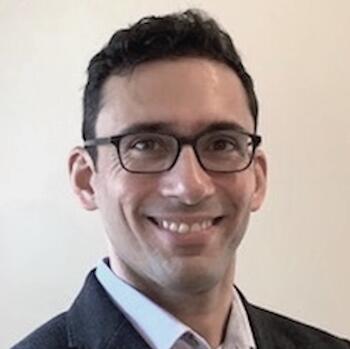This interview was first published by the Stanford News Service.
When President Joe Biden meets with his Chinese counterpart President Xi Jinping next week, they will both want to show the world that the two countries have common and compatible objectives and that cooperation is possible, says Stanford scholar Thomas Fingar.
While there are real differences between the two countries, global threats exist that require joint effort to address, such as nuclear proliferation and the danger of new arms races, said Fingar in an interview with Stanford News Service.
In anticipation of the upcoming summit scheduled for Monday, Fingar discusses what to expect when the two leaders meet and what goals Biden will want to work towards as it fits with his larger objectives for the U.S.
Fingar is a Shorenstein fellow at The Walter H. Shorenstein Asia-Pacific Research Center (APARC), which is part of the Freeman Spogli Institute for International Studies. He is leading a multi-year study, China and the World, that seeks to better understand China’s global engagement.
Fingar returned to Stanford in 2009 after having served as the first deputy director of national intelligence for analysis and, concurrently, as chairman of the National Intelligence Council. Fingar served previously as assistant secretary of the State Department’s Bureau of Intelligence and Research (2000-01 and 2004-05), principal deputy assistant secretary (2001-03), deputy assistant secretary for analysis (1994-2000), director of the Office of Analysis for East Asia and the Pacific (1989-94) and chief of the China Division (1986-89). Between 1975 and 1986 he held several positions at Stanford University, including senior research associate in the Center for International Security and Arms Control.
Where does diplomacy between the U.S. and China now stand?
Friction between Beijing and Washington did not put an end to diplomatic exchanges, but having markedly different approaches has inhibited the two sides. Simply stated, the United States has sought to work on specific global and bilateral problems to achieve priority objectives such as limiting greenhouse gases and reducing the dangers of unconstrained nuclear, space and cyber competition. China has maintained that “building trust” and improvement of the overall bilateral relationship are prerequisites for progress on specific issues. Developments in the run-up to the summit, such as the joint climate statement in Glasgow, suggest that Beijing has relaxed its preconditions.
How does the summit symbolize a diplomatic reset?
Both symbolically and substantively, the summit will empower lower-level officials in both countries to work on issues within their purview. This is more significant in China, where clear signals from the top are necessary for subordinates to engage, but it will also help to mitigate paralysis on the U.S. side resulting from competing visions of how best to address China-related issues.
What issues will be top of mind for Biden and Xi?
Both will want to diminish exaggerated characterizations of bilateral friction as evidence that we have entered a new Cold War and may be on the verge of conflict, and that cooperation on any issue is impossible. We have very real disagreements, but we also have many common or compatible objectives. Helping domestic and external audiences to understand that things are not nearly as dire as many observers contend will be a priority objective. Beyond that, I think clarifying matters of greatest concern to the other side and establishing mechanisms to address them will be on the agenda.
What areas can they agree on and where can they make progress?
They are likely to find it easier to agree on issues requiring joint effort than on the best way to address issues like nuclear proliferation (Iran and North Korea), new weapons systems and the danger of new arms races (hypersonic glide vehicles, cyber and kinetic threats to nuclear surveillance and command and control systems) and transition to cleaner energy sources.
What areas will spark disagreement and will these issues come up?
I suspect that both leaders will feel compelled to raise all of the high salience concerns in their countries. For Biden, that list includes Xinjiang, Hong Kong, PRC [People’s Republic of China] actions near Taiwan and the rollback of opportunities for Americans in China. Xi will raise U.S. military operations around China’s periphery, arms sales and relations with Taiwan, restrictions on visas for Chinese citizens and Chinese investment in the U.S., among other issues.
What would signal that the meeting was productive?
The fact that it has occurred will be significant because it will open the door to other, hopefully, less contentious exchanges across a broad spectrum of issues. Easing of travel restrictions should be easy to achieve but of more than symbolic importance. I doubt that the meeting is designed to solve any of the difficult issues in our relationship.
What do you think about Biden’s approach to China?
I agree with the President’s focus on his largely domestic “Build Back Better” agenda. Spending the time, effort and political capital necessary to secure approval of measures to address infrastructure, energy, education, childcare, internet access and a host of social justice, pandemic and voter protection issues are, in my opinion, more important than trying to improve relations with China for the sake of improving the relationship. Where working with China is necessary and/or perceived to be possible for achieving other domestic and foreign policy goals, he should do so. I think the fact that this summit is taking place is a sign that he is attempting to do that, but I judge that he is unwilling to jeopardize his ability to achieve higher priority objectives by making concessions to Beijing merely to create the appearance of a better relationship.













![[Top left] Gi-Wook Shin; [top right] Roberta Cohen; [bottom left] Tomás Ojea Quintana; [bottom right] Joon Oh](https://fsi9-prod.s3.us-west-1.amazonaws.com/s3fs-public/styles/727x409/public/hero/korea_un_north_korea_human_rights_hero.png?h=c4d9845d&itok=HNhbd4Ot)



